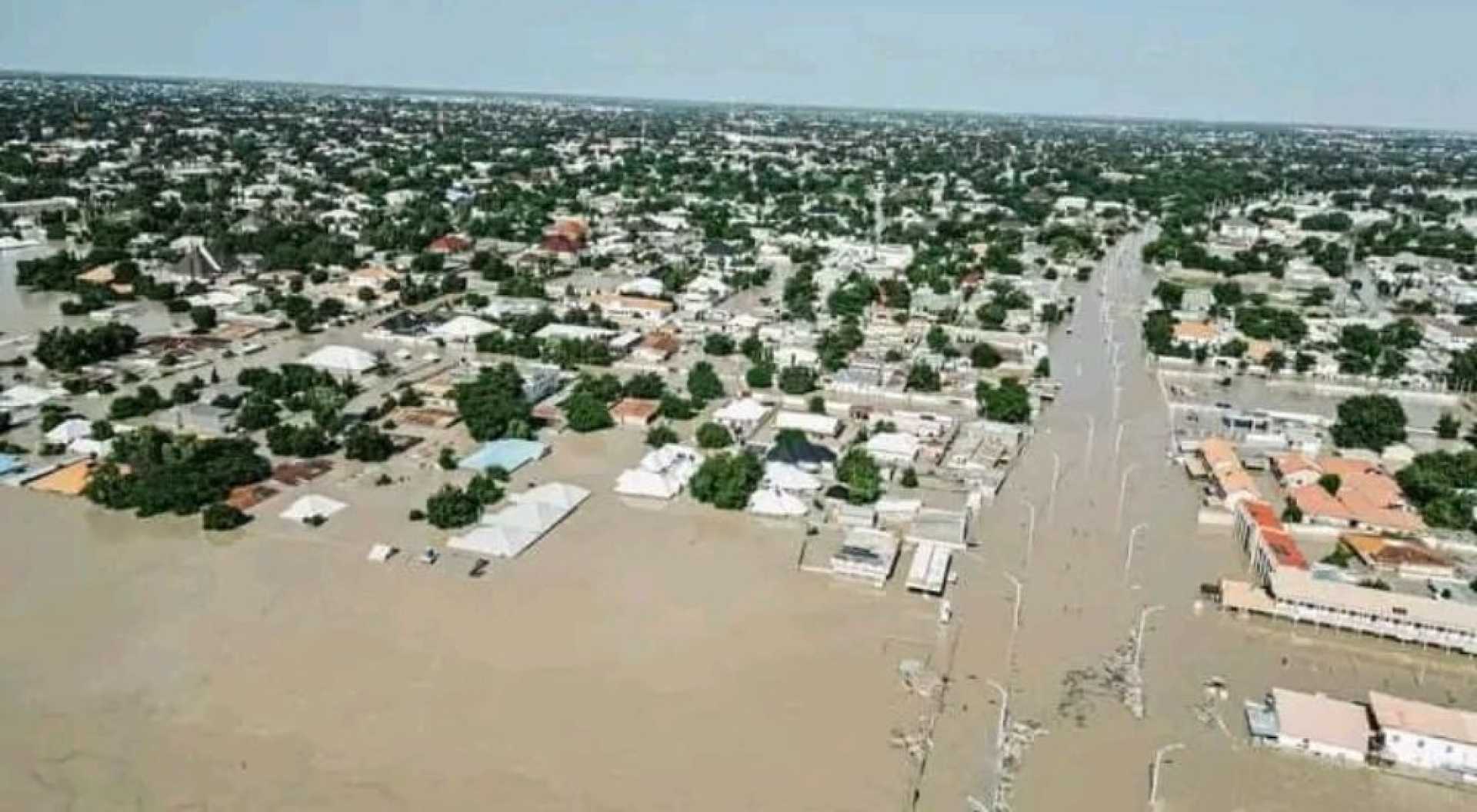News
Severe Flooding in Maiduguri Due to Alau Dam Overflow

Residents of Maiduguri, the capital of Borno State, are facing significant challenges as severe flooding has struck the area, causing widespread destruction. The flooding has been attributed to the overflow of the Alau Dam, which has reached its maximum capacity.
Reports indicate that the flooding has led to the submergence of critical infrastructure, including the popular Monday market, hospitals, and schools. As the waters continue to rise, many residents are fleeing to safer locations to escape the inundation.
In response to the crisis, the Borno State government has initiated evacuation measures to relocate survivors to temporary camps, ensuring their safety. The Commissioner for Information and Internal Security, Prof. Usman Tar, issued a statement urging residents living along riverbanks to take immediate protective actions.
According to Prof. Tar, the Alau Dam has breached another pathway, exacerbating the flooding conditions and threatening agricultural land in the region. He emphasized the importance of utilizing designated evacuation routes during this emergency.
This current flooding situation is said to be the worst experienced by Maiduguri since 1994, which also resulted in severe damage and displacement. Recent data from emergency management agencies show that over 32,000 houses have been destroyed across 27 states in Nigeria, with agriculture heavily impacted.
The National Emergency Management Agency (NEMA) has reported extensive damage to approximately 16,488 hectares of farmland, affecting the livelihoods of countless families. Notably, the Minister of State for Agriculture, Sen. Abdullahi Sabi Aliyu, warned that up to 51% of Nigeria’s farming areas may be at risk of flooding in the year 2024.
To mitigate the impacts of this disaster, the Nigerian government is considering financial assistance, with a proposal of N3 billion directed towards states affected by the floods. Additionally, the United States has committed over $6.5 million through the U.S. Agency for International Development (USAID) to support local humanitarian efforts in response to the flooding crisis.












